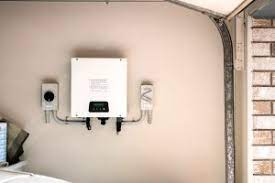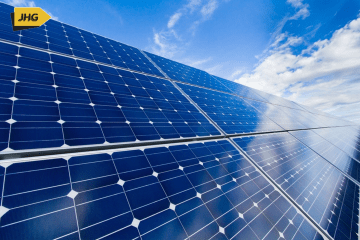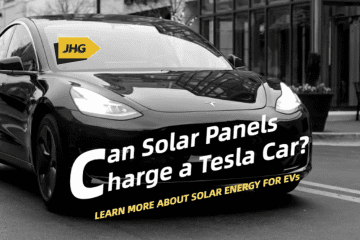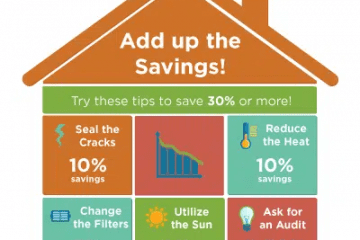As the demand for solar energy grows in Nigeria, more homeowners are investing in solar power systems to cut electricity costs and ensure an uninterrupted power supply. However, choosing the right solar inverter capacity is crucial to maximizing system efficiency and ensuring long-term reliability.
At Just HardRich Global Resources Limited, we specialize in top-tier Electrical Power and Control Engineering services, providing expert guidance on selecting the right solar inverter for homes and businesses. Our goal is to empower Nigerians with sustainable, efficient, and reliable energy solutions.
This guide will walk you through the key factors to consider when determining the optimal solar inverter capacity for your home.
Understanding Solar Inverter Capacity
The solar inverter is the backbone of any solar power system. It converts the direct current (DC) generated by solar panels into alternating current (AC), which powers household appliances. Choosing the correct inverter capacity ensures your solar system runs efficiently without energy wastage or performance issues.
When deciding on the right inverter size, you must consider:
✅ Total solar panel capacity
✅ DC-to-AC conversion ratio
✅ Household power needs and future energy demands
Let’s break down each factor to help you make an informed decision.
Total Solar Panel Capacity
The first step in choosing the right solar inverter capacity is to assess the total wattage of your solar panel array. Your inverter must match or slightly exceed this capacity to handle the power input effectively.
Why is this important?
1. If your solar panels generate more power than your inverter can handle, excess energy will be clipped, leading to energy losses during peak production hours.
2. On the other hand, if your inverter is too large for your solar array, it may operate inefficiently, reducing system performance.
Best Practice for Inverter Sizing
Many experts recommend slightly oversizing your solar panels relative to the inverter. This improves system efficiency during low-light conditions (early mornings and evenings), helping you generate more power throughout the day.
Example: If your solar panels produce a combined 5,000W (5kW), choosing an inverter with a capacity of around 4,500W to 5,000W ensures efficient power conversion without significant energy losses.
At Just HardRich Global Resources Limited, we analyze your home’s specific energy needs and recommend the best inverter size to maximize performance.
DC to AC Conversion Ratio
Another critical factor when choosing an inverter is the DC-to-AC ratio. This ratio represents the relationship between the total solar panel capacity (DC) and the inverter’s output power (AC).
What’s the Ideal DC-to-AC Ratio?
Experts suggest keeping the DC-to-AC ratio between 1 and 1.5 for optimal system performance.
A 1:1 ratio (e.g., 5kW of solar panels with a 5kW inverter) ensures your inverter operates at full capacity but may limit power output during peak sunlight hours.
A higher ratio (e.g., 6kW of solar panels with a 5kW inverter) increases overall energy harvest, improving efficiency during mornings, evenings, and cloudy days.
Pro Tip: Since solar panels have become more affordable than inverters, oversizing your panel capacity relative to the inverter is a cost-effective way to optimize energy production.
At Just HardRich Global Resources Limited, we utilize the latest energy modeling tools to determine the best DC-to-AC ratio for your home, ensuring maximum energy yield at the lowest cost.
Assessing Your Power Needs
Before selecting an inverter, it’s essential to evaluate your household’s daily energy consumption.
Key Considerations:
✔️ Calculate Your Daily Load Consumption: List all household appliances and estimate their power consumption in kilowatt-hours (kWh).
✔️ Consider Peak Energy Usage: Choose an inverter that can handle your home’s peak power demands.
✔️ Factor in Future Expansion: If you plan to add more solar panels or appliances in the future, selecting a slightly larger inverter ensures flexibility for system upgrades.
Example: If your home consumes 10kWh per day, you need an inverter that efficiently converts this power while accommodating potential increases in energy usage.
Emerging Trends & Innovative Tools in Solar Inverters
As solar technology evolves, modern inverters now include smart features that enhance performance and efficiency.
1. Maximum Power Point Tracking (MPPT): Improves energy output by optimizing panel performance in varying weather conditions.
2. Hybrid Inverters: Allow integration with battery storage for energy independence.
3. Real-time Monitoring Systems: Provide mobile app connectivity for tracking energy production and consumption.
At Just HardRich Global Resources Limited, we offer state-of-the-art solar inverters equipped with the latest technology to ensure unmatched performance and reliability.
Final Thoughts
Selecting the right solar inverter capacity is crucial for maximizing your solar power system’s efficiency and ensuring long-term savings. By considering total panel capacity, the DC-to-AC ratio, and your home’s energy needs, you can make an informed choice.
At Just HardRich Global Resources Limited, we provide expert solar power solutions tailored to your needs. Our team ensures you get the right inverter size for optimal performance, energy efficiency, and future scalability.
Would you need any help choosing the best solar inverter? Let Just HardRich Global Resources Limited power your home with cutting-edge solar solutions!
Contact us today at +234 803 255 9417 for professional consultation!




